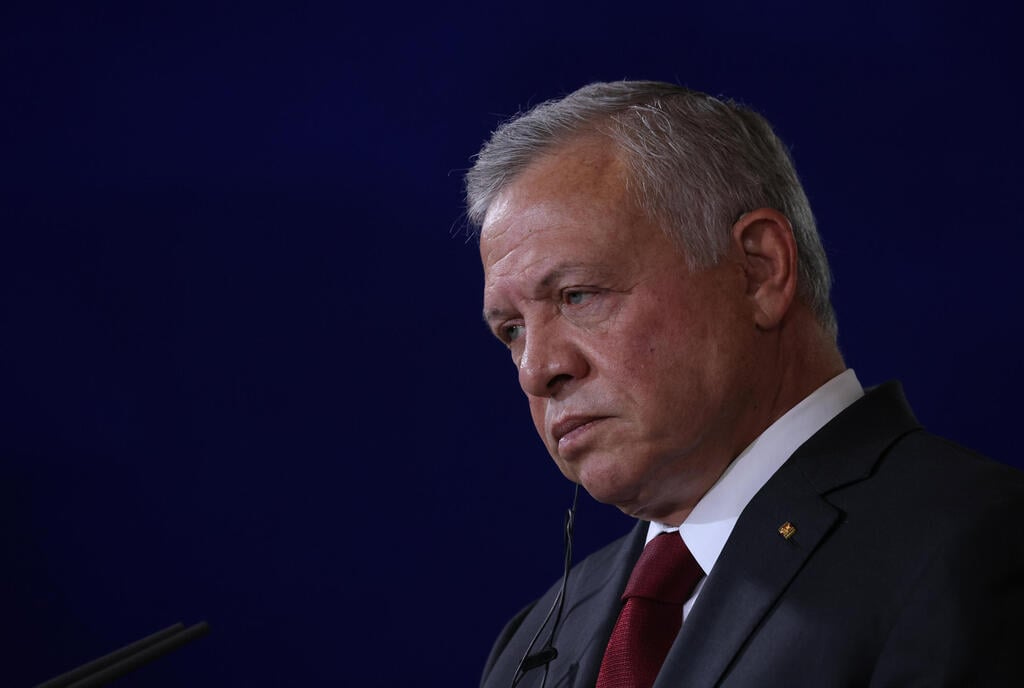Jordan has been at the centre of West Asian protests against the ongoing Israeli war in Gaza which has killed over 11,500 Palestinians mostly children, women and elderly since it began on 7 October.
One of the largest protests was registered on 20 October after the news of Al-Ahli Hospital attacks in which close to 500 Palestinians were killed. Protests, sit-ins, and rallies in the Jordan valley, on the border with the occupied West Bank, or in front of the Israeli and US embassies, have occurred on almost a daily basis since the beginning of the war. These actions have intensified with the rising death toll and continued atrocities.
Osama Abo Zineddin, a member of the Communist Party of Jordan told Peoples Dispatch that “these marches express a general popular sentiment, and they are not simply a reaction to what has happened and is happening in Gaza.”
Apart from demanding immediate end of the war, thousands who gathered on each of those occasions also raised demands to the government to completely sever diplomatic relations with Israel and for a united Arab stand against the Israeli war crimes in Gaza.
Abo Zineddin notes that, “the Jordanian street is demanding its government, and all Arab countries, to cancel relations with the occupation and support Palestinian resistance forces, on the basis that resisting the occupier is a legitimate right of the people according to international law.”
While a significant part of Jordan’s population are Palestinian refugees who were displaced during the first Nakba in 1948 by the Zionist militias, it is not this background that moves people onto the streets. “The Jordanian people, like all the peoples of the world, are motivated by the horror of the crimes committed by Israel against innocent civilians,” the Communist Party member explained. He added, “In addition, there is a shared history of struggle between the peoples of the region in the face of the forces of colonialism, especially between the Jordanian and Palestinian peoples.”
Jordan has, for the past three decades, had close relations with Israel and the US. It was the second Arab country after Egypt to establish diplomatic relations with Israel in 1994 after Palestinian leaders signed the Oslo Accords with Israel. The US also has military bases in the country and is Jordan’s biggest trading partner.
Despite suffering several instances of violent crackdowns from Jordanian security forces, the protesters have been able to create enough pressure on the Jordanian government to take decisive action against Israel.
Jordan withdrew its ambassador from Israel on 1 November and announced it would not allow the Israeli ambassador back in the country. Jordanian officials have declared that they will not be allowed back to the country until the war in Gaza ends.
West is biased against Palestinian and Arab resistance
“The world glorifies resistance movements against the Nazis that occupied Europe and considers its history a history of heroism, while it considers Palestinian and Arab resistance movements terrorist organizations,” says Abo Zineddin while underlining the inherent bias in the US and other Western countries’ approaches towards Palestinian resistance movement. “This contradiction expresses the theory of superiority through which the West sees the world.”
This discrimination is the reason “that drove unprecedented numbers of Jordanians to take to the streets and protest against Biden’s visit, as it represented a blatant provocation to the Jordanian people after what he declared of support for Israel in committing massacres against the Palestinians.”
The proposed visit to Jordan by Biden in mid-October, who since 7 October has openly supported the Israeli genocide in Gaza and blocked UN resolutions demanding ceasefire, was forced to be cancelled over the mass protests.
Biden was set to meet Jordanian King Abdullah II, Egyptian president Abdel Fattah al-Sisi and Palestinian President Mahmoud Abbas hoping for their cooperation in supporting Israel’s massacre in Gaza.
As the massacre of Palestinians in Gaza continues for a sixth week, the protests continue in Jordan and across the world.
“In Jordan, we say that we do not stand in solidarity with the Palestinian cause, but we are an essential part of it. The prevailing feeling is that it is one issue and one struggle” Abo Zineddin concludes.




